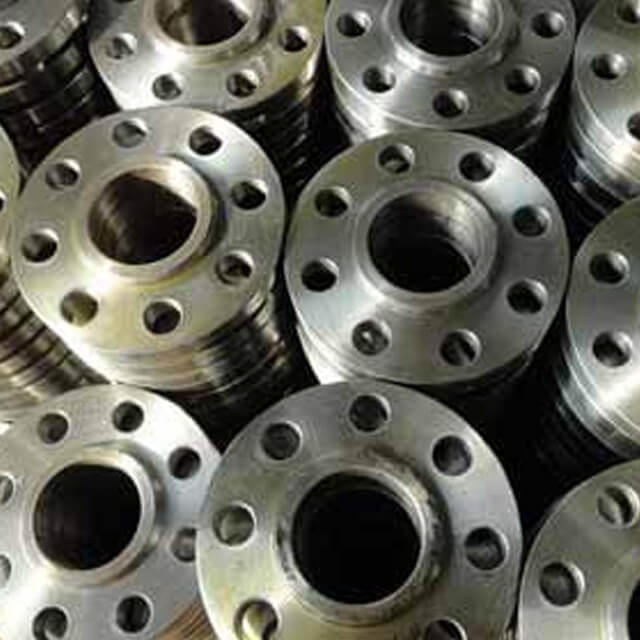About Us
The argument in favor of using filler text goes something like this: If you use real content in the Consulting Process, anytime you reach a review point you’ll end up reviewing and negotiating the content itself and not the design.
ConsultationContact Info
- Chicago 12, Melborne City, USA
- (111) 111-111-1111
- builder@gmail.com
- Week Days: 09.00 to 18.00 Sunday: Closed
A Complete Guide to Alloy Steel Flanges – Features, Benefits, and Industrial Applications by Sandvik
At Sandvik, we specialize in delivering high-performance piping solutions for industrial sectors worldwide. Among our most sought-after products are Alloy Steel Flanges, known for their exceptional strength, durability, and adaptability in extreme environments. This blog will give you a clear, concise overview of what Alloy Steel Flanges are, their advantages, where they’re used, and the different types available in the market today.

Alloy Steel Flanges Manufacturers like Sandvik create these essential components by blending steel with various alloying elements like chromium, molybdenum, and nickel. This fusion enhances mechanical properties and corrosion resistance, making alloy steel flanges suitable for high-pressure, high-temperature applications across multiple industries.
So, what exactly is an alloy steel flange? It’s a forged or cast steel ring designed to connect pipes, valves, pumps, and other equipment. The alloying process makes these flanges tougher than carbon steel counterparts, offering better hardness, wear resistance, and tensile strength. They are also ideal for environments where ordinary steel flanges might fail due to corrosion, stress, or temperature fluctuation.
Alloy Steel Flanges Suppliers provide a vital link in infrastructure by offering flange options that reduce welding time, simplify maintenance, and increase operational safety. The benefits are numerous—enhanced durability, longer service life, reduced maintenance costs, and excellent tolerance to high heat and pressure. They also resist chemical wear, making them perfect for industries dealing with aggressive substances.
The application spectrum of alloy steel flanges is wide. In the oil and gas industry, they are used in pipeline systems and refineries due to their heat resistance and strength. Power generation facilities depend on them for steam, water, and gas conveyance. In petrochemical plants, they perform reliably under corrosive environments. Even in shipbuilding and aerospace, their lightweight yet strong structure makes them indispensable. Alloy Steel Flanges Stockists ensure the availability of various flange types to meet these industrial demands promptly.
At Sandvik, we offer a comprehensive range of alloy steel flanges, each designed for specific functions and performance:
Weld Neck Flanges: These are ideal for high-pressure environments, thanks to their tapered hub which provides reinforcement at the joint.
Slip-On Flanges: Easier to align and install, slip-on flanges are cost-effective and suitable for lower pressure applications.
Blind Flanges: Used to seal pipe ends or pressure vessel openings, offering a secure and tight closure.
Socket Weld Flanges: Designed for smaller diameter pipelines, they ensure a smooth bore and better fluid flow.
Lap Joint Flanges: These are perfect for systems that need frequent disassembly for inspection or cleaning.
Threaded Flanges: Best for low-pressure, non-critical applications where welding is not feasible.
As trusted Alloy Steel Flanges Exporters, Sandvik guarantees compliance with international standards like ASTM, ASME, and ANSI. Our flanges undergo rigorous testing to meet the most demanding industrial specifications. Whether you're building a power plant, refining petroleum, or setting up a chemical facility, choosing Sandvik means choosing quality, reliability, and unmatched expertise.
Specification of Alloy Steel Flanges
| Alloy Steel Flanges Specification : | ASTM A182 / ASME SA182 |
|---|---|
| Dimension Standard : | ANSI/ASME B16.5, B 16.47 Series A & B, B16.48, BS4504, BS 10, EN-1092, DIN, etc. |
| Standard : | ANSI Flanges, ASME Flanges, BS Flanges, DIN Flanges, EN Flanges, etc. |
| Size : | 1/2" (15 NB) to 48" (1200NB) |
| Class / Pressure : | 150#, 300#, 600#, 900#, 1500#, 2500#, PN6, PN10, PN16, PN25, PN40, PN64 etc. |
| Flange Face Type : | Flate Face (FF), Raised Face (RF), Ring Type Joint (RTJ) |
| DIN Flanges : | DIN 2527, 2566, 2573, 2576, 2641,2642, 2655, 2656, 2627, 2628, 2629, 2631, 2632, 2633, 2634, 2635, 2636, 2637,2638, 2673. |
| JIS Flanges : | JIS B2220 5K, JIS B2220 10K, JIS B2220 16K, JIS B2220 20K |
| BS Flanges : | BS4504 PN 6, BS 4504 PN 10, BS4504 PN 16, BS4504 PN 25, BS4504 PN 40, BS 4504 PN 64, BS 4504 PN 100, BS 4504 PN 160, BS 4504 PN 250, BS 10, BS Table D, BS Table E, BS Table F, BS Table H. |

